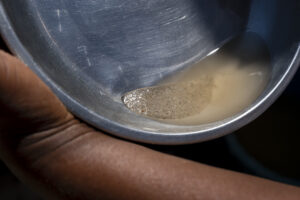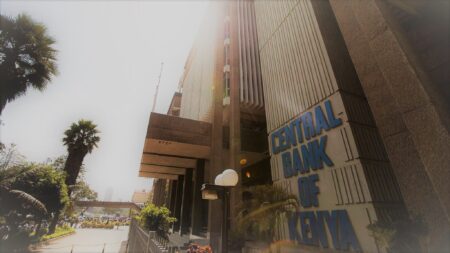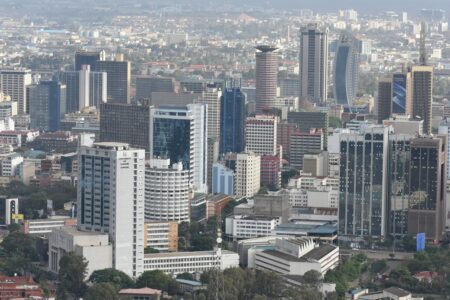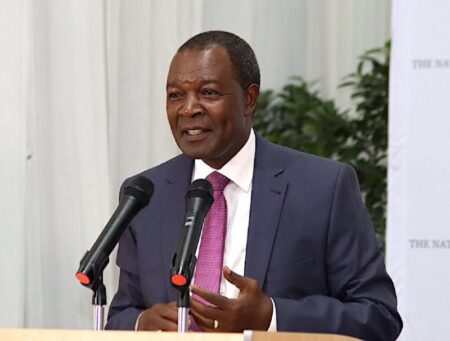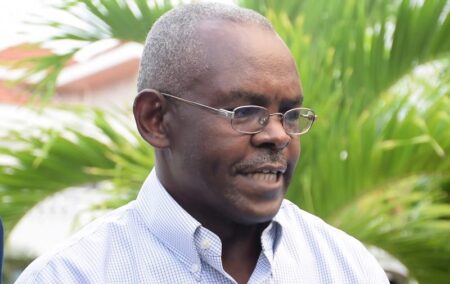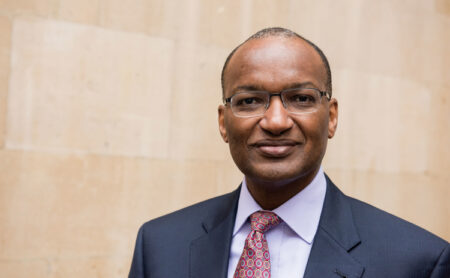- African Energy 2024: Surging investment, waves of change
- AIM Congress 2025: Competition opens doors for Africa’s top tech innovators
- Zimbabwe rolls out $24M project to reduce use of mercury in gold mines
- Zambia secures $184M IMF support as economic growth set to decline to 1.2 per cent
- Equity enters alliance with ODDO BHF to spur Europe-Africa investments
- Air Tanzania hits turbulence: Can the airline fly back to EU skies?
- Ghana’s President Elect John Mahama Outlines His Economic Blueprint
- AfDB backs “green shares” funding model with $30M AFC equity boost
Browsing: Monetary Policy Committee
- South Africa inflation has fallen to a more than four-year low.
- South Africa’s economy has experienced a thrill of positivity since the Government of National Unity (GNU.
- S&P Global Ratings endorsed the positivity by raising the view of the nation to positive from stable.
South Africa’s inflation has fallen to a more than four-year low, signaling another reduction in borrowing rates by the monetary policy committee on Thursday.
Consumer prices surged 2.8 per cent in October from a year earlier, compared with 3.8 per cent in the preceding month, according to Pretoria-based Statistics South Africa through a statement on their website.
The decline below the lower end of the central bank’s 3 per cent to 6 per cent target range will likely influence the monetary policy committee to ease the monetary policy benchmark for the second time in as many months. The widespread expectation is for the MPC to …
-
- (CBK) retained its base lending rate at a high of 13 per cent for the second time.
- This is the highest rate in 12 years, as the apex bank continues implementing monetary policies to manage stubborn inflation.
- According to CBK data, the country’s borrowers had defaulted on about $4.8 billion as of April, the highest in 18 years, due to the tough credit market.
Central Bank of Kenya (CBK) retains high interest rates
Central Bank of Kenya (CBK) retained its base lending rate at a high of 13 per cent for the second time driving the borrowing costs in Kenya to remain high for at least the next two months.This is the highest rate in 12 years, as the apex bank continues to implement monetary policies intended to manage the stubborn inflation, which slightly increased to 5.1 per cent last month from five per cent in April.
- The base-lending
- Kenya’s private sector activity and new orders rises for the first time in six months.
- Selling price inflation hits long-run average as cost burdens ease.
- However, PMI shows lowest confidence towards future output in the survey’s history.
Kenya’s business conditions improved in February, expanding private sector activity due to a further softening of inflationary pressures supported a fresh increase in new order volumes.
Stanbic Bank Kenya Purchasing Managers Index (PMI) for February registered at 51.3 per cent as lower fuel prices helped to cool input cost inflation to a 26-month low, supporting the softest increase in output prices for one-and-a-half years.
Improving business conditions are said to have led Kenyan companies to expand staffing levels at a faster rate albeit by largely hiring casuals pointing to a cautionary stance towards hiring permanently.
Nevertheless, confidence regarding future activity fell to a survey low, suggesting a broad degree of uncertainty that activity …
- The cost of borrowing in Kenya has been going up since October last year, when it was at 10.50 per cent, before two consecutive raises.
- This means banks are likely to adjust their interest rates upwards, pushing the cost of borrowing beyond the reach of many.
- The majority of bank rates are currently above 20 per cent, amid a high default rate as banks struggle with Non-Performing Loans (NPLs).
Higher interest rates to raise the cost of borrowing in Kenya
The cost of borrowing in Kenya is set for yet another rise if banks are to factor in the latest Central Bank of Kenya increase in the base-lending rate.
The Central Bank of Kenya (CBK) has raised borrowing costs to highs last seen nearly 12 years ago, as it moves to try and contain the country’s inflation, which has started to pick.
On Tuesday, the Monetary Policy Committee, CBK’s top …
- Businesses in Kenya are facing the impact of tightened monetary policy that is resulting in high lending rates.
- The government is under increasing pressure from investors to settle huge pending bills.
- At the same time, the Kenya Shilling is steadily losing ground against major world currencies, piling pressure on external debt obligations.
In the second half of the year, business optimism for companies and sectoral growth prospects in Kenya appears to be subdued, largely influenced by the dual challenges of high taxes and a weakening Shilling.
The government's task of balancing rising debt levels with tax revenue generation is taking center stage in a scenario complicated by other economic factors.
A confluence of high-interest rates within the banking sector, a politically sensitive environment, the accumulation of pending bills that impact private sector cash flow, and the depreciation of the Kenyan Shilling is painting a complex business environment.
The Shilling has…
- Dr Kamau Thugge, who is President Ruto’s advisor on fiscal affairs, is set to take over from Dr Patrick Njoroge.
- Previously, Dr Thugge served as the Permanent Secretary at Kenya’s National Treasury between 2013 and 2019.
- Prior to his nomination as Principal Secretary, he worked as a senior economic adviser in the Ministry of Finance since 2010.
President William Ruto has nominated former IMF economist Dr Kamau Thugge for appointment to head the Central Bank of Kenya. Dr Ruto picked Dr Thugge out of a list of six candidates who were interviewed on May 9th for the job that helps define Kenya’s fiscal policy.
Dr Thugge is not a stranger at Kenya’s financial industry. For close to 10 years, between 2013 and 2019, he served as the Principal Secretary, National Treasury under former President Uhuru Kenyatta. He was, however, hounded out of office over allegations of corruption. The scandal, which …
Kenya’s inflation has marginally dropped for the third straight month providing relief to households that have been battling runaway inflation since April last year.
The overall year-on-year inflation rate as measured by the Consumer Price Index (CPI) was 9.0 per cent in January 2023, down from 9.1 per cent in December and 9.5 per cent in November last year.
It hit a five-year high of 9.6 per cent in October 2022, data by the Kenya National Bureau of Statistics (KNBS) shows. The lower inflation (measure of the cost of living) in January however remains above the preferred ceiling of 7.5 per cent.
According to the government statistician, the high inflation was due to increase in prices of commodities under transport (13.1%), food and non-alcoholic beverages (12.8%) and housing, water, electricity, gas and other fuels (7.3%) between January 2022 and January 2023.
These three divisions account for over 57 per …
The Central Bank of Kenya (CBK) has retained the base lending rate in the country at 8.75 per cent, citing easing inflationary pressure and positive macroeconomics outlook.
CBK’s decision making organ – Monetary Policy Committee (MPC) met on Monday against a backdrop of a weak global growth outlook, decline in global commodity prices, easing inflationary pressures, geopolitical tensions, persistent uncertainties, and measures taken by authorities around the world in response to these developments.
This includes the back-to-back fed rate hikes witnessed in the US as the country navigated high inflation which hit a peak last year.
Kenya’s overall inflation decreased to 9.1 per cent in December 2022 from 9.5 per cent in November, mainly due to lower food prices.
Food inflation declined to 13.8 per cent in December from 15.4 per cent in November, largely driven by a decrease in prices of maize and milk products.
This is pegged on …


